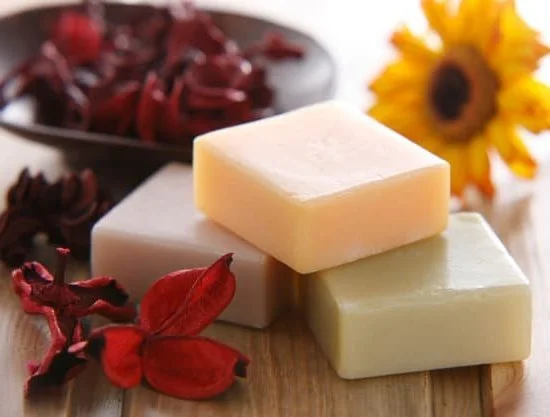Aromatherapy has long been utilized as a natural remedy for various health conditions, including mental health issues such as depression. In this article, we will explore the question “How does aromatherapy help with depression?” by delving into the science behind aromatherapy’s effect on mood, the specific benefits of different essential oils for depression, and how to incorporate aromatherapy into your daily routine for mental health benefits.
Aromatherapy is the practice of using essential oils and other aromatic compounds to improve one’s physical and psychological well-being. When it comes to depression, many individuals have found relief from symptoms such as low mood and anxiety through the use of aromatherapy. Understanding the link between aromatherapy and mood is an important aspect of exploring its potential benefits for depression.
The science behind aromatherapy’s effect on the brain is significant in understanding its potential impact on managing depression. Research has shown that certain essential oils can influence brain activity and neurochemicals, leading to improvements in mood and emotional well-being. As we delve deeper into this topic, we will explore how different aromatherapy oils can specifically benefit those struggling with depression.
Understanding the Link Between Aromatherapy and Mood
Aromatherapy has been known for its calming and mood-enhancing effects, making it a popular choice for individuals struggling with depression. But how exactly does aromatherapy help with depression? The link between aromatherapy and mood can be understood through the science behind how certain scents can impact the brain and emotions.
The Olfactory System and Emotional Response
The olfactory system, which is responsible for our sense of smell, is closely linked to the limbic system in the brain, which controls emotions and memories. When we inhale specific aromas, they travel through the olfactory system and directly impact the limbic system. This direct pathway can trigger emotional responses, including relaxation, stress relief, and mood enhancement.
Neurotransmitter Regulation
Certain aromatherapy oils have been found to influence neurotransmitters in the brain, such as serotonin and dopamine, which play a crucial role in regulating mood. For example, lavender essential oil has been shown to increase serotonin levels in the brain, promoting feelings of well-being and reducing symptoms of anxiety and depression. Similarly, citrus oils like bergamot have been found to boost dopamine production, leading to improved mood and energy levels.
Reducing Stress and Anxiety
Aromatherapy has also been found to reduce stress and anxiety levels, which are often underlying factors in depression. Essential oils like chamomile, frankincense, and rose can induce a sense of calmness and relaxation, helping individuals manage their stress levels more effectively. By addressing these co-existing issues of stress and anxiety through aromatherapy, individuals may experience an overall improvement in their depressive symptoms.
Understanding the link between aromatherapy and mood sheds light on the therapeutic potential of this alternative treatment for depression. By leveraging our sense of smell to directly impact emotions and neurotransmitter regulation while reducing stress and anxiety levels, aromatherapy offers a holistic approach to managing depression alongside traditional treatments.
Exploring the Science Behind Aromatherapy and Its Effect on the Brain
Aromatherapy is a holistic healing treatment that uses natural plant extracts to promote health and well-being. When it comes to depression, aromatherapy has been found to have a positive impact on mood and overall mental health. But how does aromatherapy help with depression on a scientific level?
Research suggests that the inhalation of essential oils can stimulate areas of the brain that are responsible for emotions, including the limbic system. The limbic system plays a crucial role in regulating emotions, behavior, and memory. For example, the inhalation of lavender essential oil has been shown to increase the activity of brain waves associated with relaxation.
Additionally, certain essential oils have been found to contain compounds that can directly affect neurotransmitters in the brain. For example, the citrusy scent of bergamot essential oil has been linked to an increase in serotonin production in the brain, which can help regulate mood and reduce symptoms of depression.
Furthermore, studies have indicated that aromatherapy can also lower levels of the stress hormone cortisol in the body. Elevated levels of cortisol are often associated with depression and anxiety, so reducing these levels through aromatherapy can be beneficial for overall mental well-being.
| Essential Oil | Benefit |
|---|---|
| Lavender | Increases relaxation |
| Bergamot | Boosts serotonin production |
| Chamomile | Promotes calmness and reduces anxiety |
Different Aromatherapy Oils and Their Specific Benefits for Depression
Aromatherapy has been used for centuries as a natural remedy for various physical and mental health issues, including depression. Different essential oils have specific benefits that can help alleviate symptoms of depression and improve overall mood. Understanding the specific benefits of these oils can help individuals make informed choices about incorporating aromatherapy into their mental health routine.
Lavender Oil
Lavender oil is one of the most popular essential oils used for alleviating symptoms of depression and anxiety. Its soothing and calming properties can promote relaxation, reduce stress, and improve sleep quality. Research has shown that inhaling lavender oil can have a positive impact on mood and emotional well-being.
Citrus Oils
Citrus essential oils such as lemon, orange, and bergamot are known for their uplifting and energizing properties. These oils can help combat feelings of lethargy and low energy often associated with depression. Inhaling citrus oils can boost mood, increase motivation, and promote a sense of positivity.
Frankincense Oil
Frankincense has been traditionally used in aromatherapy for its grounding and calming effects. It can help quiet the mind, reduce feelings of anxiety, and promote emotional balance. Frankincense oil is often used in conjunction with other essential oils to create a balanced blend for managing depression.
Understanding the specific benefits of different aromatherapy oils is crucial in creating personalized blends or choosing single oils that best suit an individual’s needs. When used correctly, these essential oils can be powerful tools in managing symptoms of depression and promoting overall emotional well-being.
The Role of Aromatherapy in Stress Reduction and Relaxation
Aromatherapy, the use of essential oils for therapeutic purposes, has long been utilized as a natural remedy for stress reduction and relaxation. The use of aromatic plants and their oils has roots in traditional medicine systems across cultures, and is believed to have powerful effects on the mind and body. Aromatherapy can play a significant role in managing stress and promoting relaxation, making it a valuable tool in the treatment of depression.
There are several ways in which aromatherapy helps with stress reduction and relaxation. The inhalation of essential oils stimulates the olfactory system, which is linked to the limbic system in the brain – the area responsible for emotions and behavior. This interaction can promote feelings of calmness, reduce anxiety, and elevate mood. In addition to inhalation, essential oils can also be absorbed through the skin during massage or added to bath water, providing physical as well as psychological benefits.
Benefits of Aromatherapy for Stress Reduction and Relaxation
- Lavender oil: Known for its calming properties, lavender oil has been shown to reduce stress and improve sleep quality.
- Ylang ylang oil: This floral oil is commonly used in aromatherapy for its ability to promote relaxation and reduce anxiety.
- Bergamot oil: With its citrusy scent, bergamot oil is a popular choice for uplifting mood and reducing stress levels.
- Chamomile oil: Often used to ease tension and promote relaxation, chamomile oil can be beneficial for those struggling with stress or depression.
Incorporating aromatherapy into your daily routine can have profound effects on mental well-being. By using diffusers or creating personalized essential oil blends for massage or bath time, individuals can experience relief from stress and improved relaxation as part of their overall approach to managing depression. However, it’s important to consult with a healthcare professional before using aromatherapy as a sole treatment for depression, especially if already taking antidepressant medications or seeking professional mental health care.
Case Studies and Personal Experiences With Aromatherapy for Depression
Aromatherapy has gained popularity as a complementary therapy for managing depression, and many individuals have reported positive experiences with its use. Research has shown that certain essential oils can have a direct impact on mood and emotions, making them valuable tools in the treatment of depression.
One study published in the journal Psychoneuroendocrinology found that inhaling the scent of lavender essential oil helped to reduce cortisol levels, the stress hormone, in participants. This suggests that aromatherapy could be effective in promoting relaxation and reducing feelings of anxiety, which are often associated with depression. Additionally, a study in the International Journal of Psychiatry in Medicine revealed that exposure to the aroma of bergamot oil led to an increase in positive emotions and energy levels among participants.
Personal accounts also support the benefits of aromatherapy for depression. Many individuals have shared their experiences of feeling calmer and more at ease after using essential oils such as chamomile, frankincense, or ylang-ylang. Some have even described a noticeable lift in their mood and a reduction in symptoms of depression after incorporating aromatherapy into their daily routine.
Another way aromatherapy can help with depression is by promoting quality sleep, which is essential for mental health. Certain essential oils like lavender or cedarwood are known for their sedative properties and can be used to create a calming atmosphere conducive to better sleep. Getting adequate rest can significantly impact mood and overall well-being, making aromatherapy a valuable tool for those dealing with depression.
| Beneficial Aromatherapy Oils | Associated Benefits |
|---|---|
| Lavender | Reduces stress and anxiety, promotes relaxation |
| Bergamot | Increases positive emotions and energy levels |
| Chamomile | Promotes calmness and relaxation |
How to Incorporate Aromatherapy Into Your Daily Routine for Mental Health Benefits
Aromatherapy can be easily incorporated into daily routines to provide mental health benefits, particularly for those dealing with depression. By using different essential oils in various ways, individuals can experience the uplifting and calming effects that aromatherapy offers. Here are some practical ways to integrate aromatherapy into your daily life for improved mental wellness:
- Diffusers: One of the most common methods of using essential oils is through diffusion. Using a diffuser, you can disperse the aroma of the oil throughout a room, creating a soothing and calming atmosphere.
- Bath and Shower: Adding a few drops of essential oil to bathwater or incorporating them into shower steam can create a spa-like experience at home. This practice not only helps relaxation but also aids in stress reduction.
- Topical Application: Some essential oils can be applied directly to the skin when mixed with carrier oils. Massaging these oils onto specific areas such as the wrists, temples, or neck can provide relief from feelings of anxiety and improve mood.
In addition to these methods, incorporating aromatherapy into your daily routine for mental health benefits can also involve breathing exercises and inhalers designed specifically for essential oil dispersal. Whether it’s taking a moment to inhale the scent of an uplifting oil during a morning meditation or adding a few drops of calming oil to your pillow before bedtime, finding simple ways to incorporate aromatherapy into your day can have a significant impact on mental wellbeing.
Furthermore, it’s important to remember that while aromatherapy can help with depression management, it should not replace professional treatment. It is crucial to seek guidance from healthcare professionals when dealing with mental health issues and not rely solely on alternative therapies like aromatherapy.
Precautions and Considerations When Using Aromatherapy for Depression Management
In conclusion, aromatherapy has shown promising results in helping with depression by positively impacting mood, reducing stress, and promoting relaxation. Understanding the link between aromatherapy and mood is essential in utilizing specific essential oils for their benefits in managing depressive symptoms. The science behind aromatherapy and its effect on the brain provides valuable insights into its potential as a complementary therapy for depression.
Different aromatherapy oils offer specific benefits for depression, such as uplifting mood, promoting relaxation, and reducing anxiety. It is crucial to consider individual preferences and sensitivities when choosing the most suitable essential oils for each person’s unique needs. Additionally, incorporating aromatherapy into daily routines can be a simple yet effective way to gain mental health benefits and manage depressive symptoms. Whether through inhalation or topical application, there are various methods to enjoy the therapeutic effects of aromatherapy.
Considering precautions and recommendations when using aromatherapy for depression management is important to ensure safety and optimize its benefits. It is advisable to consult with a healthcare professional or certified aromatherapist before initiating aromatherapy treatment for depression.
By taking these considerations into account, individuals can responsibly incorporate aromatherapy into their mental health regimen and potentially experience its positive impact on managing depression. Ultimately, understanding how does aromatherapy help with depression can lead to improved well-being and an enhanced quality of life for those seeking alternative approaches to mental health care.
Frequently Asked Questions
How Does Aromatherapy Relieve Depression?
Aromatherapy can relieve depression through the use of essential oils that have calming and uplifting properties. When inhaled or applied to the skin, these oils can stimulate the brain’s limbic system, which is responsible for emotions, leading to a sense of relaxation and improved mood.
Why Is Aromatherapy Good for Mental Health?
Aromatherapy is good for mental health because it provides a natural and non-invasive way to manage symptoms of stress, anxiety, and depression. The use of aromatic plant extracts can help regulate emotions, reduce feelings of agitation, and promote better sleep, all of which contribute to overall mental well-being.
What Helps People Cope With Depression?
People coping with depression may find relief through various methods such as therapy, medication, self-care practices like exercise and healthy eating, as well as social support from friends and family. Engaging in enjoyable activities and hobbies can also provide a sense of purpose and distraction from negative thoughts.
It’s important for individuals to seek professional help if they are struggling with depression.

Are you looking for a natural way to improve your health and wellbeing?
If so, aromatherapy may be the answer for you.





